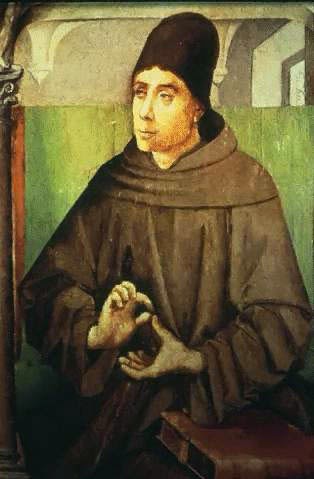As the weather gets colder and we travel
from autumn to winter, my husband and I have been indulging ourselves in the
luxury of spending more time reading.
After a busy start to the school year in my new role as a homeschooling coordinator
(which has been both a challenge and a great joy), it now seems right and good
to spend some quality time hibernating with hot chocolate and good books in the
ever-darkening evenings. And since my husband has embarked on a “study year”,
as he contemplates permanent profession as a Secular Franciscan, we’ve immersed
ourselves in learning more about various Franciscan personalities throughout history.
Last year we studied the spirituality and life of St. Francis, in depth. This fall, it’s been like meeting some terrific
new Franciscan friends!
Such as…
St. Clare… who we discovered was not just
Francis’ feminine counterpart, but a woman of independence, strength and
courage. In 1212, she and her female
followers founded the Order of Poor Ladies, also known as the “Poor Clares”,
and together they created a way for the radical life of Francis to be lived
with freedom and joy. Her letters and
writings are so hopeful, encouraging, visionary and loving.
St. Bonaventure… a medieval philosopher and
Franciscan Friar who became Minister General of the Franciscan Order in 1265, just
one year before the death of St. Francis. Where as much Christianity in this
period was filled with fear and guilt, Bonaventure’s frame of reference is big,
optimistic and positive. He passionately believed in the universal “belonging”
of all creation, and he wrote and preached that fear-based preoccupations are
small and unnecessary. His writings
still feel like a breath of fresh air, 750 years after they were written.
John Duns Scotus… who in 1224 joined an
early group of Franciscans who lived in Canterbury, England. His brilliant
insights were a breakthrough in the Middle Ages. In a time when the concept of
the individual apart from the group had not yet been born, Scotus honoured the
uniqueness of persons and things within the Wholeness of God. He understood that God’s love always shows
itself in the specific, the concrete, the particular – something he called
“this-ness”. Fascinating stuff!
This fall we’ve also enjoyed reading two books written by modern Franciscans, which have sparked much thought and discussion:
The Lessons
of St. Francis: How to Bring Simplicity and Spirituality Into Your Daily Life (Penguin Group Publisher; 1997) by John Michael Talbot. Talbot is a Secular Franciscan, musician and
author, who founded and still lives in a Franciscan integrated monastic community
at the Little Portion Hermitage in the Ozark Mountains. This beautiful book is
filled with wisdom and practical advice about living a more simple and
authentic life.
Immortal
Diamond: Searching for Our True Self (Jossey-Bass
Publishers; 2013) by Richard Rohr. Rohr
is a Franciscan priest and founding director of the Centre for Action and
Contemplation in Albuquerque, New Mexico.
His book is a wonderful exploration of identity and truth – of shedding
our false self and getting in touch with our true self, which lies like a
diamond buried within and is rooted in God’s love and mercy.
And now we are approaching the third Sunday
of Advent. Our research, reading and
discussions this fall have given both my husband and I a better appreciation of
our rich Franciscan heritage...and also nourished our faith and increased our
Advent longing for more of Christ in our lives!











